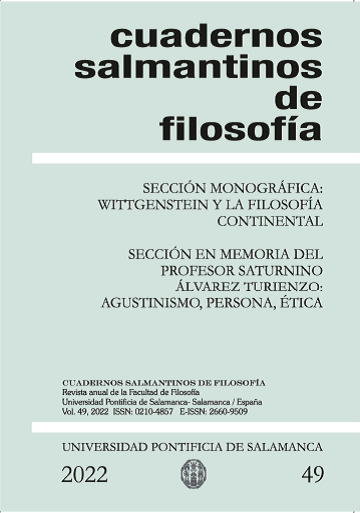The Concept of person in Zubiri
Main Article Content
In his work, Zubiri approached the concept of person from different perspectives, one more radical than the other. The first perspective consists of identifying, from a formal point of view, the person with reality in apprehension. A person is a mode of formal reality, reduplicatively one’s own. That is what the author calls “personal ownness” (“suidad personal”). In this respect, the person cannot be defined as substance nor existence, as it has been usual since
ancient times, but rather as substantive reality. From another point of view, the idea of person refers to two different concepts: a constitutive structure that Zubiri calls “personeity”, and an actualization in the world that he calls “personality”. Personeity is therefore not the same as personality. This distinction, so important here, has led Zubiri to reject other more modern or current definitions of personhood, all of them elaborated in terms of life, conscience, morality, etc. In Zubiri’s opinion, these defeinitions, though not incorrect, come too late: human beings are persons, in the sense of personeity, from the moment they become a structure that is actualized in the world as essence or open reality.

